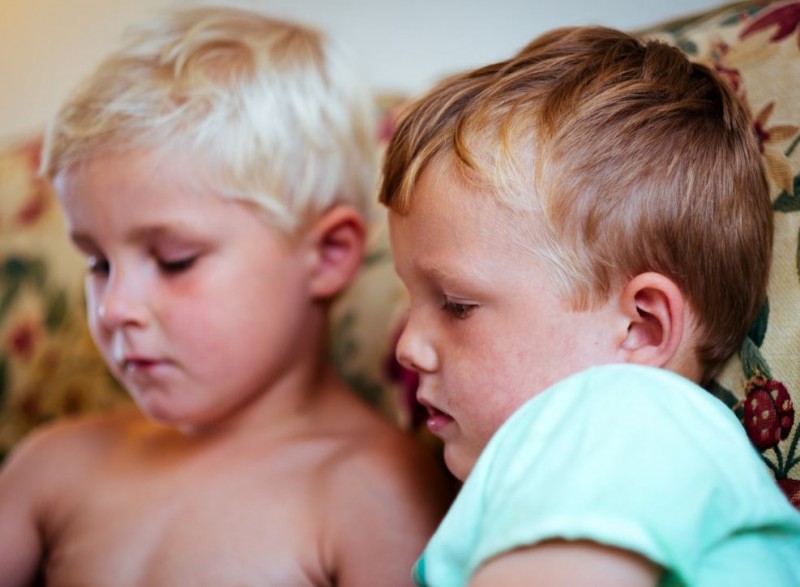
Sibling relationships hold a special place in our lives. From playful childhood companionship to lifelong bonds of support and understanding, the connection we share with our brothers and sisters is truly unique. In this article, we will delve into the significance of sibling relationships and explore ways to understand and strengthen these essential bonds.
The Significance of Sibling Relationships
Bonds for Life
The relationships we form with our siblings are meant to last a lifetime. Unlike friends who may come and go, siblings are often our first friends and remain a constant presence throughout our journey.
Emotional Support System
In times of joy or distress, siblings can provide a reliable support system. They understand us in ways that others might not, offering a comforting shoulder to lean on during life's ups and downs.
Shared Memories and Experiences
Growing up together fosters a treasure trove of shared memories and experiences. These shared moments create a deep sense of camaraderie and can be a source of joy and nostalgia in adulthood.
Understanding Sibling Dynamics
Birth Order's Impact
Birth order plays a significant role in shaping sibling dynamics. The oldest child may be protective and responsible, while the middle child often seeks to find their place in the family. Youngest siblings tend to be more carefree and outgoing.
Personality Differences and Conflicts
Each sibling brings their unique personality traits to the relationship, and these differences can sometimes lead to conflicts. Understanding and appreciating these distinctions can help navigate disagreements.
Communication Styles
Effective communication is the cornerstone of any healthy relationship. Siblings may have varying communication styles, and learning to communicate openly and honestly can bridge gaps and promote understanding.
Strengthening Sibling Relationships
Cultivating Empathy and Understanding
Empathy is key to forging stronger bonds with siblings. Putting ourselves in their shoes and trying to understand their perspective fosters empathy and enhances the relationship.
Effective Communication Strategies
Open and respectful communication is vital in resolving conflicts and deepening connections. Active listening and expressing emotions constructively can lead to meaningful conversations.
Resolving Conflicts Amicably
Conflicts are natural in any relationship, but they need not be detrimental. Learning to resolve conflicts amicably and finding common ground can strengthen the sibling bond.
The Role of Parents
Fostering Positive Sibling Bonds
Parents play a pivotal role in nurturing sibling relationships. Encouraging shared activities, family bonding time, and positive reinforcement can foster closeness between siblings.
Avoiding Favoritism
Avoiding favoritism is crucial to maintaining harmony among siblings. Treating each child with fairness and equal love helps prevent feelings of resentment.
Teaching Conflict Resolution Skills
Parents can teach conflict resolution skills to their children, empowering them to handle disagreements constructively and avoid lingering animosity.
Maintaining Relationships in Adulthood
Nurturing Long-distance Relationships
As siblings grow older and life takes them to different places, nurturing long-distance relationships becomes important. Regular communication and visits help sustain the bond.
Sustaining Connection Amid Life Changes
Life changes, such as marriage or relocation, can alter sibling dynamics. Being adaptable and supportive during these transitions is vital to sustaining the relationship.
Celebrating Milestones Together
Marking significant life milestones together, like birthdays or holidays, keeps the bond alive and strengthens the shared history.
The Impact of Technology on Sibling Relationships
Staying Connected in the Digital Age
Technology has made staying connected easier than ever. Video calls, messaging apps, and social media platforms bridge geographical gaps.
Potential Pitfalls of Virtual Communication
While technology offers convenience, it can never fully replace face-to-face interaction. Striking a balance between virtual and in-person communication is essential.
Sibling Rivalry and Jealousy
Understanding the Causes
Sibling rivalry and jealousy may stem from feelings of competition or perceived favoritism. Identifying the root causes helps address these issues effectively.
Managing and Overcoming Rivalry
Promoting a supportive environment where siblings celebrate each other's achievements and individuality can help overcome rivalry and foster unity.
The Importance of Forgiveness and Reconciliation
Healing Past Wounds
Past conflicts may leave emotional scars, but forgiveness and reconciliation can promote healing and lead to stronger relationships.
Rebuilding Trust
Rebuilding trust after a breach is challenging but crucial. Patience, understanding, and genuine efforts are necessary to regain trust.
Celebrating Differences and Individuality
Respecting Unique Perspectives
Appreciating and respecting each sibling's unique perspective and choices fosters an environment of acceptance and understanding.
Supporting Each Other's Passions
Encouraging and supporting each other's passions and pursuits strengthens the bond and creates a sense of camaraderie.
Sibling relationships are invaluable and multifaceted. Understanding the dynamics at play and actively working to strengthen these bonds can lead to lifelong friendships. Celebrating differences, practicing empathy, and fostering open communication are vital steps toward nurturing and maintaining meaningful connections with our brothers and sisters.
Embracing Healthy Habits: 7 Things That Must Be Normalized in Our Relationships
Codependency and Setting Boundaries: Promoting Individual Growth in Relationships
20 Love and Relationship Quotes: Expressing Affection and Emotions